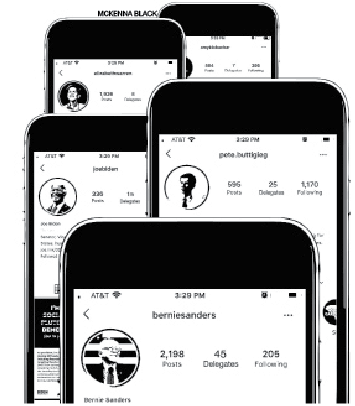We need shorter political campaign periods
March 5, 2020
It’s the 59th Quadrennial Presidential Marathon, and we’re approaching the mile 20 water station. Bernie is handing out Gatorade, Warren is chasing you with her cowbell and Trump is blasting “Eye of the Tiger.”
This campaign cycle will be the longest recorded in both U.S. and world history, according to an April 2015 New York Times article. But that’s not a record to be proud of.
America has always been known to draw out the election process as far as physically possible, so candidates have enough time to make a solid case for why they should be the next leader of our country.
The American public set off on their never-ending trek to the end of campaign season 1,117 days ago, when President Donald Trump announced his campaign for re-election in February 2017.
In Britain, the long election cycle lasts 139 days, according to an April 2015 New York Times article. The normal race begins five weeks before election day, when the Queen dissolves Parliament.
In France, the candidates are only supposed to campaign for two weeks, although they are allowed to debate and make public appearances up to six months before election day, according to the Library of Congress website.
Now, we don’t have to be that extreme, but America should consider making their campaign season much shorter. It would conserve the enthusiasm of the candidates and the public, and make the race to election day more about policy, and not popularity.
The first problem we face with such a long election cycle is excessive fundraising by candidates. The longer the race lasts, the more ads need to be paid for, the more rallies need to be funded and the more staff needs to be compensated.
As a grassroots candidate, Sen. Elizabeth Warren has been known to use her debate time to accuse more fundraiser-dependent candidates, such as former candidate Pete Buttegieg, of sucking up to big money corporations to earn their “dark money.”
Long campaign seasons not only have an effect on wallets, but on attitudes.
The Democratic debates have become more about attacking colleagues and fighting over the same three issues than actually discussing plans for the country.
We’re all essentially living in the reality show “the Bachelor.” We began with a pool of over 20 hopefuls, whose names I can now barely remember.
In a Gallup poll from 2019, researchers discovered as the campaign continued, voter interest rate decreased by 15% over the course of three months.
It’s acceptable for a program such as “the Bachelor” to lose views due to boredom. But when it comes to the election of our country’s leader, we shouldn’t be losing attention because people are too exhausted to keep up.
The presidential election is possibly the most important public event that happens in the U.S., so it is dire that American citizens stay engaged. By adopting a shorter election cycle, politics could avoid the campaign quicksand.
The finish line is just around the corner. Pete is clapping you in and Biden is waiting to give you your “I survived the campaign season of 2020” T-shirt. So soldier on, brave political athletes. Your race is almost up.







